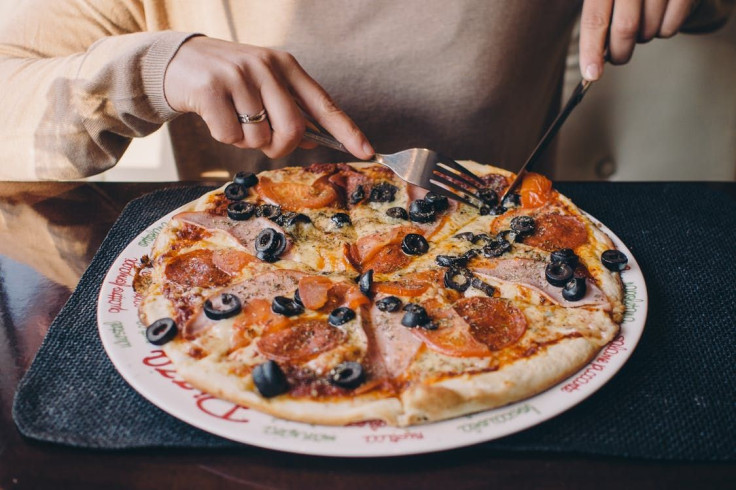Eating In Front Of A Mirror May Make Food More Appealing And Help You Regain Your Appetite

Imagine sitting alone in front of a mirror eating your dinner. While it may sound a bit strange, it might be able to help you regain your appetite, according to new research.
Prior studies have indicated that when people eat with the company of others, they eat more food and claim it tastes better, but it’s not quite understood why. To better understand this phenomenon known as “social facilitation of eating," researchers at Nagoya University in Japan conducted a series of experiments. They discovered that both elderly and younger people who ate in front of a mirror ate more than those who couldn't see their own reflection. The results could help elderly people, or others who are suffering loss or loneliness, stay healthy by eating well, the authors note.
Read: Am I Full Yet? How The Brain And Stomach Work To Balance Appetite For Healthy Eating
“We wanted to find out what the minimum requirement is for the social facilitation of eating,” lead author Ryuzaburo Nakata said in a press release. “Does another person have to actually be physically present, or is information suggesting the presence of others sufficient?”
In the first experiment, sixteen elderly Japanese adults were told they would be evaluating the taste of various types of popcorn. They were then assigned to eat in two different types of booths: one with a mirror reflecting the upper half of their body and one with an LED monitor reflecting the wall behind it. After a 90-second tasting period, they then filled out a questionnaire asking about their opinion of the popcorn. The findings revealed that the participants ate more popcorn and said it tasted better when they ate in front of the mirror versus LED screen.
In the second experiment, researchers set out to determine which aspects from the first experiment influenced the facilitation effect. To test this, another group of elderly participants ate in front of a static image of themselves taken in advance and then a static image of the wall. The researchers found that the participants ate more popcorn and rated it as tasting better when they were in front of the static image of themselves rather than the wall.
Read: How The Gut May Influence Food Choices: Fruit Flies With More Bacteria Had Fewer Cravings
“Studies have shown that for older adults, enjoying food is associated with quality of life, and frequently eating alone is associated with depression and loss of appetite,” study author Nobuyuki Kawai said. “Our findings therefore suggest a possible approach to improving the appeal of food, and quality of life, for older people who do not have company when they eat — for example, those who have suffered loss or are far away from their loved ones.”
But, is the same effect present among younger people? To find out, Nobuyuki and his colleagues conducted the first experiment again, but this time with a group of sixteen Japanese men and women, ages 20-23 years. Their findings indicated the same effect: the popcorn tasted better and more was eaten in front of a mirror rather than in front of the wall-reflecting monitor.
“These findings suggest that the facilitation of eating does not require the presence of another individual. Rather, static visual information of ‘someone’ eating food is sufficient to produce the ‘social’ facilitation of eating,” the study authors conclude in their paper, published in Physiology & Behavior.
Furthermore, they point out that future experiments should be conducted to understand how their results fare in real-life situations, rather than in a laboratory.
See also: Top 5 Saltiest Foods In The American Diet, According To The CDC
5 Healthy Food Instagram Accounts To Follow; Platform May Help Users Choose Better Foods, Study Says



























